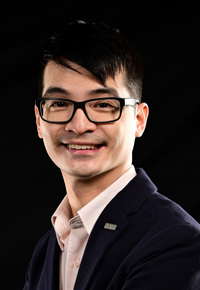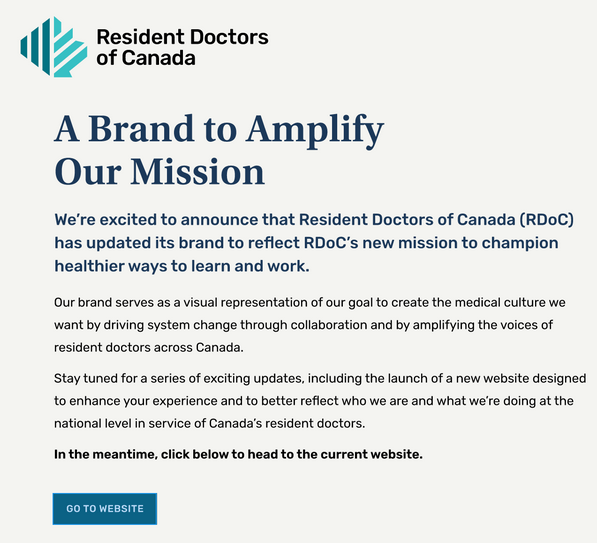PGY-3 Internal Medicine – McMaster University – University of British Columbia – University of Toronto
ResidentInternal Medicine McMaster UniversityUniversity of British ColumbiaUniversity of Toronto
August 2022
About Me
My name is Brandon Tang and I’m a PGY-3 resident in Internal Medicine at the University of British Columbia (UBC). I’m from Mississauga, Ontario and studied Biology and Psychology at McMaster University, before completing medical school at the University of Toronto. My partner is also a resident physician and we actually did the couples match through CaRMS together. We are very fortunate to have had the chance to grow together as partners and doctors over the past few years.
Why I chose Internal Medicine
Looking back, the same reasons why I wanted to become a doctor aligned with the practice of Internal Medicine. I enjoy solving problems and thinking critically, which drew me to the breadth and diagnostic reasoning of this specialty. I love to teach and quickly saw how this is engrained in the culture and practice of Internal Medicine, as we work with learners on a daily basis.
Finally, I envision a major aspect of my career to be working at a systems level to improve patient care and our medical training system – by virtue of their position at the hub of inpatient care, internists are perfectly situated to engage in quality improvement, policy, and medical education initiatives in tandem with providing direct patient care.
Clinical Life
What kinds of rotations are required in your program?
The UBC Internal Medicine program provides a wide range of clinical exposure across different subspecialties, hospitals, and areas of the province. We spend about one third of each year on CTU where we manage general medicine patients with diverse issues. We have about five electives every year, in which we can explore subspecialties of our choice or pursue scholarly interests such as research. In PGY-2, we transition to the senior resident role, which is an incredible learning experience and really accelerates your growth as a physician.
Another great aspect of our program is the flexibility we have to work at all of the hospitals across BC, both in the Lower Mainland and in rural or remote regions. The program also has several unique rotations such as dedicated ultrasound or medical education blocks where you can hone special skills of interest.
Which of your personality characteristics are particularly helpful in your field?
Strong communication skills are crucial in Internal Medicine. Our specialty is highly team-based, as we are always working with interprofessional care providers and other medical services to coordinate care. Additionally, the patients we look after can be very sick and sensitive communication is needed to guide them through challenging conversations, such as Goals of Care discussions.
As previously mentioned, critical thinking is an important trait and something that attracts many people to Internal Medicine. We approach problems systematically by integrating a large amount of information including the patient history, physical examination findings, and the results of investigations. Solving complex problems is both one of the most challenging and rewarding parts of being an internist!
What are the best aspects of your residency?
As an Internal Medicine resident, I love that I learn something new every day. I have grown a tremendous amount in a short period of time because of this, and it feels amazing to have developed so much independence as a clinician over the past two years.
I also enjoy the team-based nature of my specialty and residency. I have the privilege everyday of working alongside amazing co-residents, students, physicians, nurses, and countless other healthcare professionals. It is refreshing to always be meeting new people and feel like you are working toward a common cause.
On a personal note, it has been an amazing experience completing residency in Vancouver! Staying healthy in residency requires work-life balance and I love having access to incredible food, activities, and the outdoors here in beautiful BC.
What are the most challenging aspects of your specialty?
The long hours and intellectual rigor are two of the most challenging aspects of the Internal Medicine residency. On a day-to-day basis, we are responsible for a large number of complex patients and it sometimes feels like we are being pulled in a million directions on the busy inpatient wards.
Given that Internal Medicine provides acute inpatient care, we have a fair amount of overnight calls which can be physically tiring. Our patients are often very ill, so the difficult decisions and conversations that we engage in can be emotionally challenging as well. Intellectually, there is a large volume of knowledge to master in Internal Medicine and this can feel overwhelming when you are first starting out.
That said, while the learning curve is steep, the rigors of the Internal Medicine residency prepare you well for working as an independent physician. I have enjoyed the challenge of residency and have always felt well-supported by my colleagues along the way!
What is one question you’re often asked about your decision to pursue your specialty?
Medical students always ask me how they should study Internal Medicine. I think the most important part is developing a systematic approach to every core topic. When you are always asking yourself, “why?” in terms of the physiology, mechanisms, and underlying reasons for problems, you can develop a strong mental framework that helps you remember information long term.
Having a logical approach helps me regenerate the knowledge when it’s needed, like when there are a few case presentations I only encounter a few times a year (e.g. acute hypercalcemia).
Can you describe the transition from clerkship into residency?
Moving into residency, the main difference was the volume of independent decisions that you have to make on a daily basis. When you first start off, you are asked dozens of questions every day which you may not know the answers to. However, this is completely normal as a junior resident and you always have backup – including your colleagues, senior resident, and attending physician.
It is important to be humble and accept that you cannot know everything in medicine. However, if you keep asking questions and being curious, you will be surprised at how much you grow over your first year of residency. At the same time, you take on more responsibility at each stage of training in Internal Medicine, so you are continually challenged to keep growing. It’s a specialty that truly embodies the idea of lifelong learning!
What are your future practice plans?
I aspire to be a Clinician Educator which would allow me to combine my interests in medical education leadership, administration, and scholarship. Clinically, I envision working as an attending physician at an academic teaching hospital, which would give me the privilege of working alongside learners and shaping future generations of physicians.
From an academic perspective, I am interested in exploring how quality improvement principles can inform medical education design. I plan on completing a Master of Education during my fellowship training. This would complement my graduate degree in System Leadership and Innovation, completed concurrently to medical school.
We approach problems systematically by integrating a large amount of information… solving complex problems is both one of the most challenging and rewarding parts of being an internist!”
What are your fellow residents like and how do you interact with each other?
My fellow residents are fantastic and have been a huge source of support during residency. Most Internal Medicine residents at UBC are based out of three hospitals, so you run into your colleagues essentially every day.
Our program has a very supportive culture and everyone is always sharing information and advice. We have socials where we get the chance to spend time with residents from other years in the program, which is great for building rapport. There are also a few program-wide annual events that our attending physicians attend, including an annual BBQ, retreat to Whistler, and resident awards dinner.
Non-Clinical Life
What are your academic interests?
I am passionate about both medical education and quality improvement, and my academic activities during residency have aligned with this. I’ve been engaged with medical politics, serving on the Board of Directors of Resident Doctors of British Columbia (RDBC) and was a former committee co-chair of Resident Doctors of Canada (RDoC).
With respect to medical education, I also served as Chief Resident for the International Conference on Residency Education (ICRE) 2020; which involved overseeing the strategic direction of the world’s largest conference on residency education.
At UBC, based on the needs of residents in my program, I was inspired to create Vancouver Notes, a novel medical textbook consisting of consult templates for common Internal Medicine presentations. I’ve also been engaged in medical education research. Most recently, writing a systematic review examining the evidence behind how we design inpatient clinical teaching teams.
While residency has been busy, I have definitely found the time to continue engaging in my academic interests, which I envision to be a major aspect of my career.
What is your work-life balance like, and how do you achieve this?
I find that my work-life balance is constantly a moving target, varying greatly based on the demands of my current rotation. Fortunately, my partner is also a resident physician, so we have a mutual understanding of the challenges of residency. I am very fortunate to have her in my life and she is one of my main supports.
I have many hobbies outside of medicine, and the key to maintaining them is carving out small, regular blocks of time. For example, in PGY-2, I made a personal commitment to go for a brief run every night, which has helped me maintain better exercise habits. I also love cooking, preparing most of my own meals, and have adopted a meal prep routine every weekend. I enjoy reading and have made a habit out of reading most nights before bed. It’s easier said than done, so I also use a habit tracker app to see how well I’m keeping up with my personal goals.






